The latest information on the GII 2025 report was shared at the workshop. Along with that, some adjustments to the methodology, the meaning of the index, innovation trends and prospects of Vietnam in the coming years were also discussed and commented by the delegates.
Innovation for all people
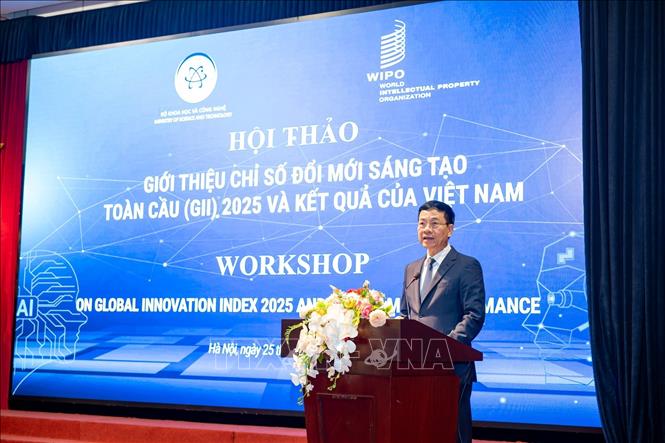
Speaking at the workshop, Minister of Science and Technology Nguyen Manh Hung emphasized: Vietnam's innovation must be innovation for all people. Innovation must bring science and technology to touch, change and solve practical problems in Vietnam, forming a spirit of innovation among all people, making innovation a way of life, a lifestyle of all people, of all organizations, forming a start-up nation based on digital technology, based on innovation.
Minister Nguyen Manh Hung assessed: "GII is a fairly comprehensive set of innovation indicators. Looking at this, we can know how to improve Vietnam's innovation capacity. Guiding and analyzing the meaning of each indicator will help Vietnam have a clear basis to improve its capacity, directly contributing to the goal of sustainable development."
Minister Nguyen Manh Hung also proposed that WIPO implement a program to support Vietnam in upgrading its GII ranking, aiming to enter the global top 30 in GII in the next 5 to 10 years. This is a challenging goal, requiring the concerted efforts of the entire political system, the science and technology community and businesses.
To further improve Vietnam’s position on the GII rankings, Minister Nguyen Manh Hung also proposed four key groups of solutions. These include perfecting institutions and the innovation environment; in which, Vietnam needs to remove legal barriers, financial mechanisms, and intellectual property; and at the same time, encourage businesses to boldly invest in research and development (R&D) and apply new technologies.
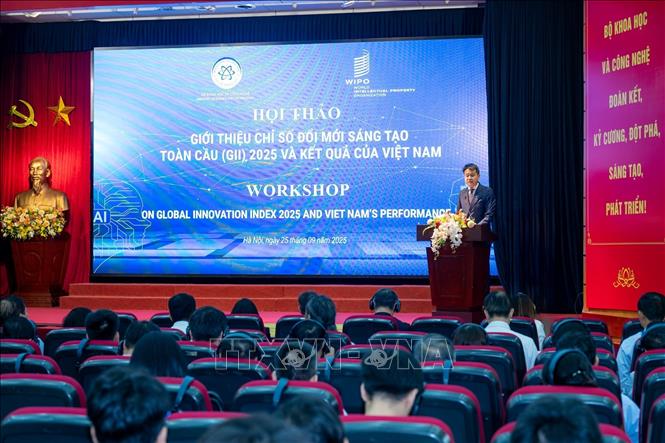
Three important draft laws: the Intellectual Property Law, the Technology Transfer Law and the High Technology Law will be amended in the direction of considering research results as assets that can be traded, valued, included in financial reports, and used as collateral for loans or capital contributions.
"The most important shift this time is from protecting rights to assetizing, commercializing and marketizing research results. Intellectual property must become a strategic competitive tool for businesses and countries. A developed country is a country where 70-80% of its assets are intellectual property. Vietnam has reached a stage where it needs to prioritize the development of intellectual property to become a developed, high-income country," Minister Nguyen Manh Hung emphasized.
Another solution mentioned is investment in science, technology, innovation and digital infrastructure. Vietnam will build research centers, modern laboratories, supercomputers, open data systems and national interconnectivity – the fundamental foundations for breakthrough innovation.
In addition, Minister Nguyen Manh Hung also emphasized the development of high-quality human resources. Accordingly, related policies will focus on innovating STEM education, promoting links between universities - research institutes - enterprises, and attracting and employing domestic and foreign talents.
Another point is to promote innovation in enterprises. According to the Minister, enterprises must be the center of the innovation ecosystem. The State will accompany with financial support programs, venture capital funds, research ordering mechanisms and public procurement priorities for new products.
"If we do well in the four pillars, I believe that the current position on the rankings will continuously improve, but more importantly, creativity will become the true strength of the country, contributing to realizing the 2045 goal of a developed, creative and powerful Vietnam," the Minister emphasized.
Turn science and technology into driving force
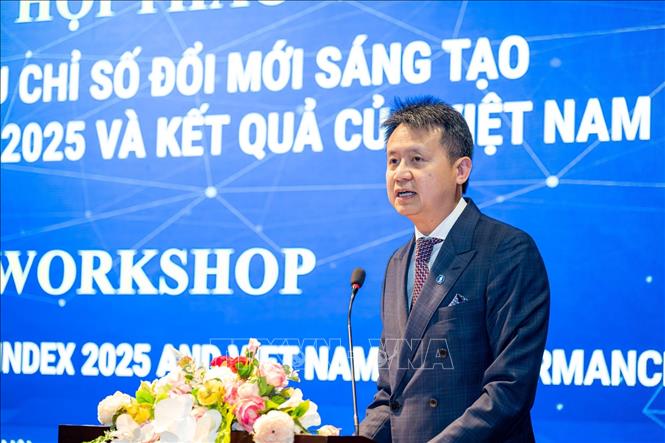
WIPO Director General Daren Tang highly appreciated Vietnam's strong progress. With the goal of becoming an industrialized country with an upper middle income by 2030 and a high income by 2045, innovation and intellectual property will be the key to Vietnam's development. Along with that, Resolution 57 plays a guiding role, turning science, technology and innovation into a central driving force for development.
According to the GII 2025 report, Vietnam ranked 44/139 economies, 2/37 in the lower middle-income group and 9th in the Southeast Asia, East Asia and Oceania region. Notably, Vietnam has always maintained outstanding performance compared to its income group over the past decade. In addition, Vietnam has "localized" the GII into the Local Innovation Index (PII), helping provinces and cities self-evaluate and compete fairly; at the same time, promulgating intellectual property policies closely linked to innovation...
Mr. Sacha Wunsch-Vincent, WIPO expert, also made recommendations to help Vietnam continue to improve its GII ranking, focusing on 5 pillars: Investing more and more effectively in R&D; building a close link between science and industry; moving from "assembly" to proactive production; developing a startup ecosystem and growth finance; forming and managing intangible assets well to attract value.
Opinions at the workshop also said that innovation does not appear naturally, but must be created by institutions, infrastructure, human resources, businesses and synchronous policies. Vietnam is converging all these factors, with high political determination, the companionship of the science and technology community, businesses and international support from WIPO.
Source: https://baotintuc.vn/thoi-su/doi-moi-sang-tao-va-so-huu-tri-tue-chia-khoa-phat-trien-cua-viet-nam-20250925171534561.htm




![[Photo] Prime Minister Pham Minh Chinh attends the 1st Hai Phong City Party Congress](https://vphoto.vietnam.vn/thumb/1200x675/vietnam/resource/IMAGE/2025/9/27/676f179ddf8c4b4c84b4cfc8f28a9550)

![[Photo] Soldiers guard the fire and protect the forest](https://vphoto.vietnam.vn/thumb/1200x675/vietnam/resource/IMAGE/2025/9/27/7cab6a2afcf543558a98f4d87e9aaf95)



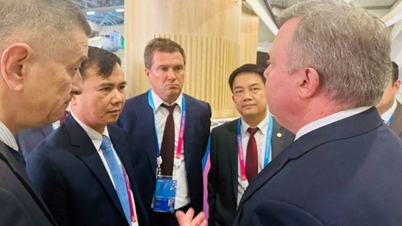



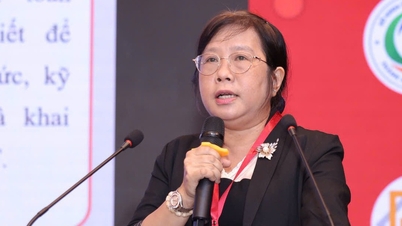

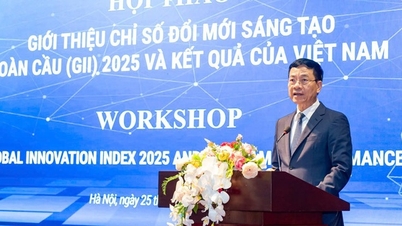


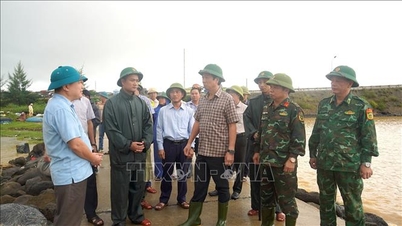


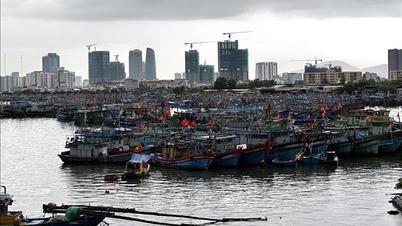






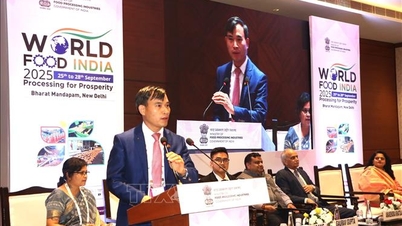


































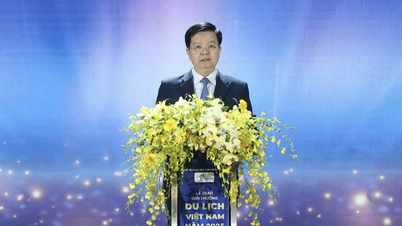
















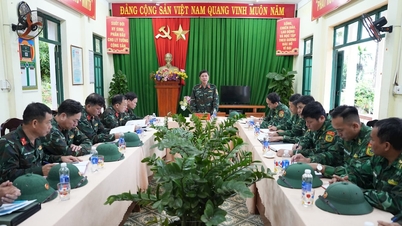






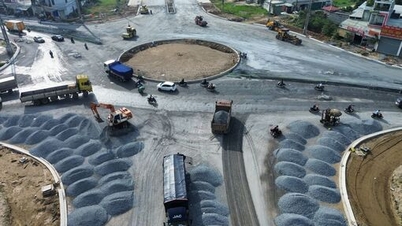













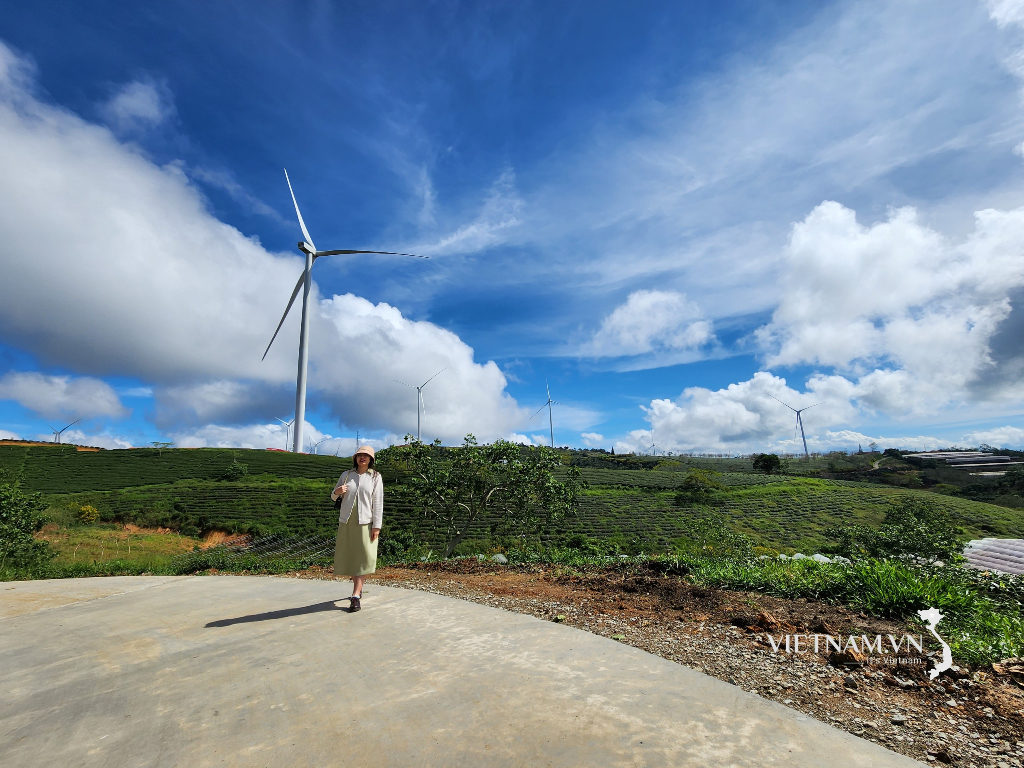
Comment (0)